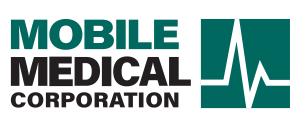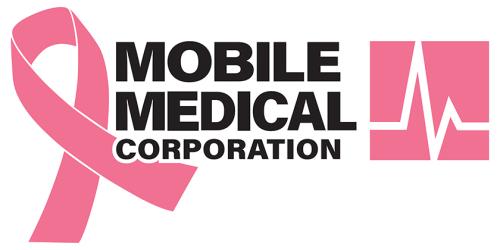October is National Breast Cancer Awareness Month
Breast cancer is a disease in which malignant (cancer) cells form in the tissues of the breast.
No one knows the exact causes of breast cancer. Doctors seldom know why one woman develops breast cancer and another doesn't, and most women who have breast cancer will never be able to pinpoint an exact cause. What we do know is that breast cancer is always caused by damage to a cell's DNA.
Early Detection
According to the American Cancer Society, when breast cancer is detected early, and is in the localized stage, the 5-year relative survival rate is 99%. Early detection includes doing monthly breast self-exams, and scheduling regular clinical breast exams and mammograms.
Breast cancer screening involves checking a woman's breasts for cancer before there are signs or symptoms of the disease. A mammogram is an X-ray picture of the breast. Doctors use a mammogram to look for early signs of breast cancer. The United States Preventive Services Task Force (USPSTF) recommends that most women who are at average risk and are 50 to 74 years old get one every 2 years. USPSTF recommendations state that women with a parent, sibling, or child with breast cancer are at a higher risk for breast cancer and may benefit from beginning screening in their 40s. If you're 40 to 49 years old, talk to your health care provider about when to start screening.
What can you do to reduce your chance of getting breast cancer?
Breast cancer is a disease in which malignant (cancer) cells form in the tissues of the breast.
No one knows the exact causes of breast cancer. Doctors seldom know why one woman develops breast cancer and another doesn't, and most women who have breast cancer will never be able to pinpoint an exact cause. What we do know is that breast cancer is always caused by damage to a cell's DNA.
Early Detection
According to the American Cancer Society, when breast cancer is detected early, and is in the localized stage, the 5-year relative survival rate is 99%. Early detection includes doing monthly breast self-exams, and scheduling regular clinical breast exams and mammograms.
Breast cancer screening involves checking a woman's breasts for cancer before there are signs or symptoms of the disease. A mammogram is an X-ray picture of the breast. Doctors use a mammogram to look for early signs of breast cancer. The United States Preventive Services Task Force (USPSTF) recommends that most women who are at average risk and are 50 to 74 years old get one every 2 years. USPSTF recommendations state that women with a parent, sibling, or child with breast cancer are at a higher risk for breast cancer and may benefit from beginning screening in their 40s. If you're 40 to 49 years old, talk to your health care provider about when to start screening.
What can you do to reduce your chance of getting breast cancer?
- Keep a healthy weight
- Engage in regular physical activity
- Don't drink alcohol or limit alcoholic drinks to no more than 1 per day
Known Genetic Risk Factors
- Gender
- Age
- Race
- Obesity
- Family History & Genetic Factors
- Personal Health History
- Menstrual & Reproductive History
- Certain Genome Changes
- Dense Breast Tissue
Known Environmental Risk Factors
- Lack of physical Activity
- Poor Diet
- Being Overweight or Obese
- Drinking Alcohol
- Radiation to the Chest
- Combined Hormone Replacement Therapy
Myths about Breast Cancer
Myth: Finding a lump in your breast means you have breast cancer
Myth: Men do not get breast cancer, it affects women only
Myth: A mammogram can cause breast cancer to spread
Myth: Breast cancer is contagious
Myth: If the gene mutation BRCA1 or BRCA2 is detected in your DNA, you will definitely develop breast cancer
Myth: Antiperspirants and deodorants can cause breast cancer
Myth: Finding a lump in your breast means you have breast cancer
Myth: Men do not get breast cancer, it affects women only
Myth: A mammogram can cause breast cancer to spread
Myth: Breast cancer is contagious
Myth: If the gene mutation BRCA1 or BRCA2 is detected in your DNA, you will definitely develop breast cancer
Myth: Antiperspirants and deodorants can cause breast cancer



